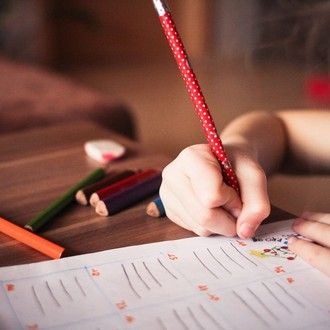
If you are considering settling down in Mauritius with your children, it is crucial to obtain information regarding the island’s education system and institutions. In an effort to help you, DECORDIER immobilier has compiled some useful information regarding the same.
Bilingualism
Since it was colonised by both France and the United Kingdom, French and English are frequently used in Mauritius. Besides, learning both languages is compulsory from the primary level until the completion of the School Certificate (Grade 10, equivalent to the Sophomore Year in the United States or the “Seconde” in France).
Question papers – in universities as well – are in English, the official language of Mauritius. However, there are some schools and universities on the island that use French only as their teaching medium.
Primary and secondary education
Primary and secondary education is free of charge; no fee is to be paid to schools. Students at the primary, secondary and tertiary level enjoy free transport from the bus stop that is closest to their houses to their institute and on the way back. A bus pass is given to them at the beginning of every term/semester.
The primary education system has recently undergone change that has also had an impact on the secondary level. The “Nine Year Schooling” programme has abolished the “Certificate of Primary Education” (CPE), which meant the end of the primary education. The latter has been replaced by the PSAC in 2017. Non-core and non-examinable subjects such as Civic Conduct, Communication Skills and Drama, were introduced. This approach also aims at making the use of technological tools in teaching.
Types of schools in Mauritius
1. Governmental (Government Schools and State Secondary Schools)
2. Fee-charging – most preprimary schools are fee-charging but some primary and secondary ones are too. Some of their advantages are: meals, the presence of a doctor and having less students in one class
3. Private schools regulated by the Private Secondary School Association (PSSA) or the Diocesan Service. These include religious schools, namely Catholic and Islamic ones. The school curriculum is the same, but the focus is also placed on religious practices and the development as a human being.
4. Special needs schools – for autist children for instance
Tertiary education
After the High School Certificate or Grade 12 (Senior Year or Terminale) , students have the following options regarding tertiary education. They can either join:
1. A Mauritian university (the national one, the online one or the technology one)
2. The branch of an abroad university in Mauritius
3. An institute offering professional training (in the mechanics, plumbing, hairdressing, beauty/wellbeing, catering (as well as many other) fields)
There also are institutions dedicated to the advanced study of English or French, like the British Council or the Alliance Française respectively, in Mauritius.
Courses in Mauritian universities and institutions have been made free of charge for Mauritian students early this year 2019.
It is a point to be noted that most university campuses in Mauritius do not include accommodation. Consequently, a foreigner would have to find one. It is quite easy to find housing on the Internet though.
